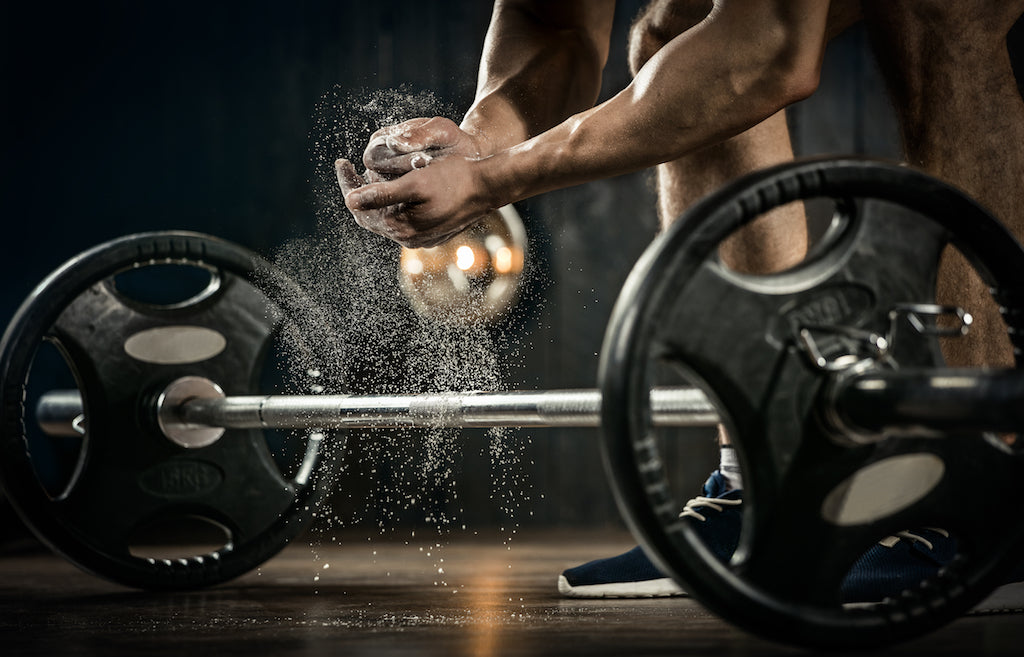Building muscle & reaching your training goals on a plant-based diet

As a personal trainer and health professional, I spend a lot of time in gyms, talking about all things health and fitness. When someone finds out I'm vegan during one of these conversations, their first question is almost always 'but where do you get your protein from?', particularly from those looking to build muscle.

Protein is one of the three macronutrients (along with carbohydrates and fats), which make up the majority of our food. Proteins are made of amino acids - often referred to as 'the building blocks of the body' - and are the major component of muscle tissue.
So where does this obsession with protein come from? Is it a legitimate concern, or is it just very clever marketing by food manufacturers and supplement companies? Body builders and those doing resistance training 4-5 times a week will require a greater amount of dietary protein to repair the broken muscle tissue. This isn't the case for the majority of the population who are really just trying to get a little fitter or a little stronger.
Now I'm not going to say that protein intake isn't important, because it is. 'Adequate' protein is what we should be aiming to achieve from diets: approximately 1.2-1.6 grams per kilo of bodyweight would be more than enough for those training.
I don't usually track my calories and macros, as over the years I have developed a pretty good ability to eyeball and estimate my requirements. In the name of research however, I did track them, and found my protein intake fluctuated between 90g and 170g. At 95kg bodyweight that is just below 1g to almost 2g per kg of bodyweight. I found that my intake fluctuated with my schedule - during busy periods my protein dropped slightly but, when meals were more consciously prepared, my intake was considerably higher.
There is no perfect, there are only degrees of optimal. I don't stress about it because it all evens out in the end. If you have never tracked your protein then I would recommend it for a short period of 2-3 weeks, especially if you're trying to reduce your body fat levels. Obtaining adequate to high protein intake when in a calorie deficit can help maintain lean muscle mass, a key factor in reducing body fat. Using food/macro logging apps such as My Fitness Pal can be really useful tools in achieving your body fat loss goals.
As a vegan, I do need to be slightly more aware of the sources I eat to ensure that I get all essential and non-essential amino acids. Soy is one of my favourite complete plant based proteins, mainly in the form of tofu and tempeh. Many seeds (eg. hemp, pumpkin) provide all the amino acids, are rich in healthy fats and supply fibre for digestive and heart health. Combinations of different food types such as rice and beans may just be one of the the most budget-friendly and versatile complete protein duos. Along with packing a serious protein punch, this combo is also a significant source of fibre.
Lately there has been a massive increase in 'fake meats' or textured vegetable proteins (TVPs) coming on the market. Awful acronym aside, there are some fantastic and delicious options for meaty alternatives, with most supermarkets ever-increasing their range of these high-protein, vegan-friendly foods.
In conclusion, protein is important, especially for those undertaking a resistance training regime, but it's not the be-all and end-all. Choose quality, whole-grain sources of food and you may be surprised that with a little practice, you can easily meet your daily requirements. Don't buy into the hype, assess your daily intake, and then use a plant-protein powder supplement, if needed.
If you enjoyed this article, you might like Best vitamins to boost your energy.




